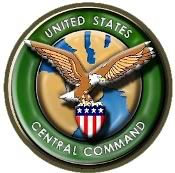The Importance of Keeping Secrets
AT the Central Intelligence Agency, we are more than holding our own in the global war on terrorism, but we are at risk of losing a key battle: the battle to protect our classified information.
Judge Laurence Silberman, a chairman of President Bush's commission on weapons of mass destruction, said he was "stunned" by the damage done to our critical intelligence assets by leaked information. The commission reported last March that in monetary terms, unauthorized disclosures have cost America hundreds of millions of dollars; in security terms, of course, the cost has been much higher. Part of the problem is that the term "whistleblower" has been misappropriated. The sharp distinction between a whistleblower and someone who breaks the law by willfully compromising classified information has been muddied.
As a member of Congress in 1998, I sponsored the Intelligence Community Whistleblower Protection Act to ensure that current or former employees could petition Congress, after raising concerns within their respective agency, consistent with the need to protect classified information.
Exercising one's rights under this act is an appropriate and responsible way to bring questionable practices to the attention of those in Congress charged with oversight of intelligence agencies. And it works. Government employees have used statutory procedures — including internal channels at their agencies — on countless occasions to correct abuses without risk of retribution and while protecting information critical to our national defense.
On the other hand, those who choose to bypass the law and go straight to the press are not noble, honorable or patriotic. Nor are they whistleblowers. Instead they are committing a criminal act that potentially places American lives at risk. It is unconscionable to compromise national security information and then seek protection as a whistleblower to forestall punishment.
He goes on to provide a specific example of news reports in 1998 that disclosed the fact that the U.S. was tracking the satellite phone of Osama Bin Laden. This disclosure effectively ended our ability to keep track of Bin Laden because someone let the cat out of the bag. For all the arguments that this leak did not endanger national security, the fact of the matter is Bin Laden stopped using the phone as soon as he knew we were onto him. Whether or not 9/11 would have still happened without the leak, I suppose, is debatable. What isn't debatable is that one of the tools we were using to track him was eliminated. That one tool may have made all the difference in the world and no matter how you look at it, the fact that it was no longer available put national security at risk.
While it's true the press has a responsibility to report the news and ask tough questions, it also has the responsibility to use discretion and consider the safety and welfare of the citizens it serves. The same responsibility applies to anonymous government sources who leak the information to the press. There is no glory in placing the security of the nation at risk because you either have an ax to grind or because you believe the people have a right to know.
The people don't need to know everything, but they do need to know that their government is protecting them and that these efforts aren't being undermined by those who don't know when to keep their mouths shut.































<< Home